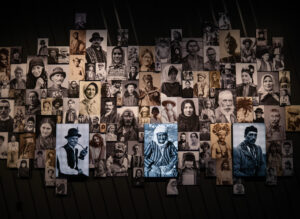The ICME 2023 Annual Conference – Museums and Change: Transforming Our Institutions for the Future. The Annual Conference has been organised in collaboration with the Museum of Ethnography in Budapest, Hungary and will be hosted in their ‘new home’, in the City Park of Budapest, from 03-07 December 2023.
The issue of change is not a new one in the museum sector. If there is one constant in our sector it is the imperative for museums to adapt to constant sociopolitical, economic, and environmental change and its associated uncertainties. Michael M. Ames (2013: 4) has argued that ‘the future of successful museums will be of constant repositioning to adapt to, or outwit, the forces of change’. The paradoxical nature of organisational change within museums has been emphasized by Robert J. Janes in his groundbreaking ‘Museums and the Paradox of Change’ (2013), which points to the multiple challenges and opportunities of museum change.
During the last decade, diverse events have affected our planet including migratory and health crises, demands for cultural integration, political instability, and climate change. For instance, Europe, Latin America and the Caribbean, Africa and Asia have witnessed unprecedent numbers of refugees and migrants. At the same time, the earth’s biodiversity has seen alarming declines due to changes in land and sea use, overexploitation by extractive industries, invasive species or pollution. Discontent has also led to massive protests across the globe. Cultural, socioeconomic, and political change are impacting people’s lives, their perceptions of the future, and the way museums are communicating our shared histories to new generations. Museums have strived to stay relevant, turning into spaces for self-representation, social awareness, emotional understanding and environmental activism, strengthening the fragile social tissue in many countries and fostering hope in their communities.
Arguably, however, the early 2020s have witnessed an especially significant wave of change within the museum sector triggered by major socioeconomic events including the resurgence of the Black Lives Matter and decolonizing movements, the Covid-19 pandemic, Russia’s invasion of Ukraine, the crisis of living, rising levels of inflation and poverty, and a growing climate emergency. At sectorial level we have also experienced profound transformations including a new museum definition, decolonizing and restitution efforts, the embracement of digital technologies, tremendous IT changes and influence (AI), climate-friendly practices, and collaborations with activist groups.
The aim of this conference is to focus on this period of accelerated change and explore how museums have sought to respond to these external and sectorial factors of change. With Museums and Change, we invite museum professionals and scholars to reflect on how museums have responded, or are seeking to respond, to these socioeconomic, political, cultural, intellectual and environmental factors of change. We are also interested in instances in which museums have sought to proactively foster internal change, moving beyond simply responding to external and sectorial pressures.
The conference will explore the topic of change in the light of the new museum definition that fosters sustainability, community participation and ethical communication. We aim to offer new insights into the predominant theory and practice by critically considering alternative perspectives and approaches to the topic of “museums and change”, moving away from Eurocentric, colonial and neoliberal logics. Thus, we are particularly keen to hear from colleagues whose professional practice and research focus on museums located in Eastern Europe and the Global South, thus fostering reflection on areas of the world with similarities and shared experiences. However, relevant papers addressing practices across the world are also welcome.
